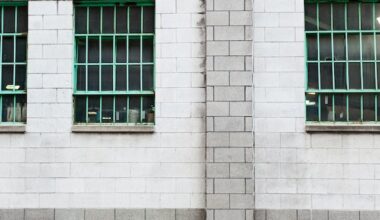An important read: The Internet Health Report is a report about our experience with the internet from a human point of view. The main question: How healthy is the internet as we know it? Mozilla’s new initiative issues a report with an open source compilation of data, research and stories to show how and where the internet is evolving.
The five main points: privacy and security, openness, digital inclusion, web literacy and decentralization. I have extracted some of the findings, but really advice you to read the whole report. It is very well written, easily readable and covers important topics for now and the future.
Privacy and security
The report talks about the Internet of Things as a development that causes worry – because of its growth, but also because of the high risks involved once things go wrong.
They key problem is that IoT is growing faster and bigger than we could have imagined. Some of the risks posed are personal … while other risks are at the system or environmental level …. Either way, it’s going to be costly to fix when things go wrong.
It’s interesting to read how the “attack surface” of the internet is growing, mainly due to new devices that are connected around the world. From dolls to fridges; everything can and will be connected to the internet. This creates a huge responsibility for the manufacturers as well as owners, as everything connected to the internet can be exploited. When I say exploited, I’m not only pointing in the direction of possible hackers, stealing data or watching your home surveillance webcam, I’m pointing in the way of manufacturers as well. Not only transparency is needed, regulation is needed when it comes to collecting and interpreting data.
.. grapple with how we handle these issues as a society today: what we can leave up to industry, what we can leave up to consumer choice and what we need to regulate.
As much as I like data, I 100% understand and agree on regulating data-collection. And with a gigantic growth of connected devices, 30 billion by 2020, the sooner we regulate this, the better.
The report also makes an important notice that accountability is an important factor in terms of security. Poor software, hardware and governance can be exploited easily – but who would be responsible when that happens? “There will need to be more than one answer”, says the Mozilla Report.
Openness
That openness of the internet is not guaranteed, is something the report states clearly. Internet shutdowns are rising, and control seems to be the main (if not only) factor to do this:
Justifications for shutdowns vary, but there is mounting evidence that access to the Internet is used as a tool of control and oppression by the authorities of different countries
Especially on local and regional level, there’s a growth in communities being shut down from access to the internet or other forms of communications, as you can see in this comparison between 2016 and 2017, provided by KeepItOn:
Remember the WhatsApp shutdown in Brazil? It’s an example of government pressuring a way into getting what they want, disabling major communication channels. Feels like something that wouldn’t happen where you live? “Two-thirds of the world’s Internet users live in countries where Internet and media censorship are common”, according to the report.
Digital inclusion
Digital inclusion is “not just about how many people have access to the Internet, but whether that access is safe and meaningful for all of us.”
Even though more and more people have access to the internet, there’s still a bigger gap than you probably think. According to the report, 96% of young people in Europe have internet access, compared to 40% of young people in Africa. This is not only due to availability, but also due to affordability. Lowering the costs of internet access would have a great impact on the low accessibility numbers, says to the report.
Another part of digital inclusion is diversity in tech, which is non-existent at the moment:
Today, the people who develop software in the United States are overwhelmingly white and male.
What is interesting, is the effect of what we see, do and use on an everyday base:
Evidence shows that persistently low diversity leads to software, algorithms and products that reflect the biases of their creators.
Without diversity, there’s bias. And bias isn’t healthy – in contrary, it can be dangerous.
Web literacy
Learning to read and interpret the digital world in a fake news area is something that causes concern, states the report. With even Stanford students having trouble judging the validity of information they find online, there’s a responsibility for platforms to be more transparent in providing the sources of their news. Not only that, there’s need for education to develop these skills, which will be even more important for future generations.
Decentralization
Who controls what? Even though the internet belongs to all of us, the reality is that there are five companies who rule all, says the report.
This is where blockchain can really play a role in redefining the internet and the way the community contributes to the internet. In my opinion, the distribution of control has yet to come with Blockchain as upcoming technology, but we have yet to see what happens. Don’t underestimate the “companies that have more wealth than many nations”, they won’t go down without a fight.
Source: The Internet Health Report 2018

